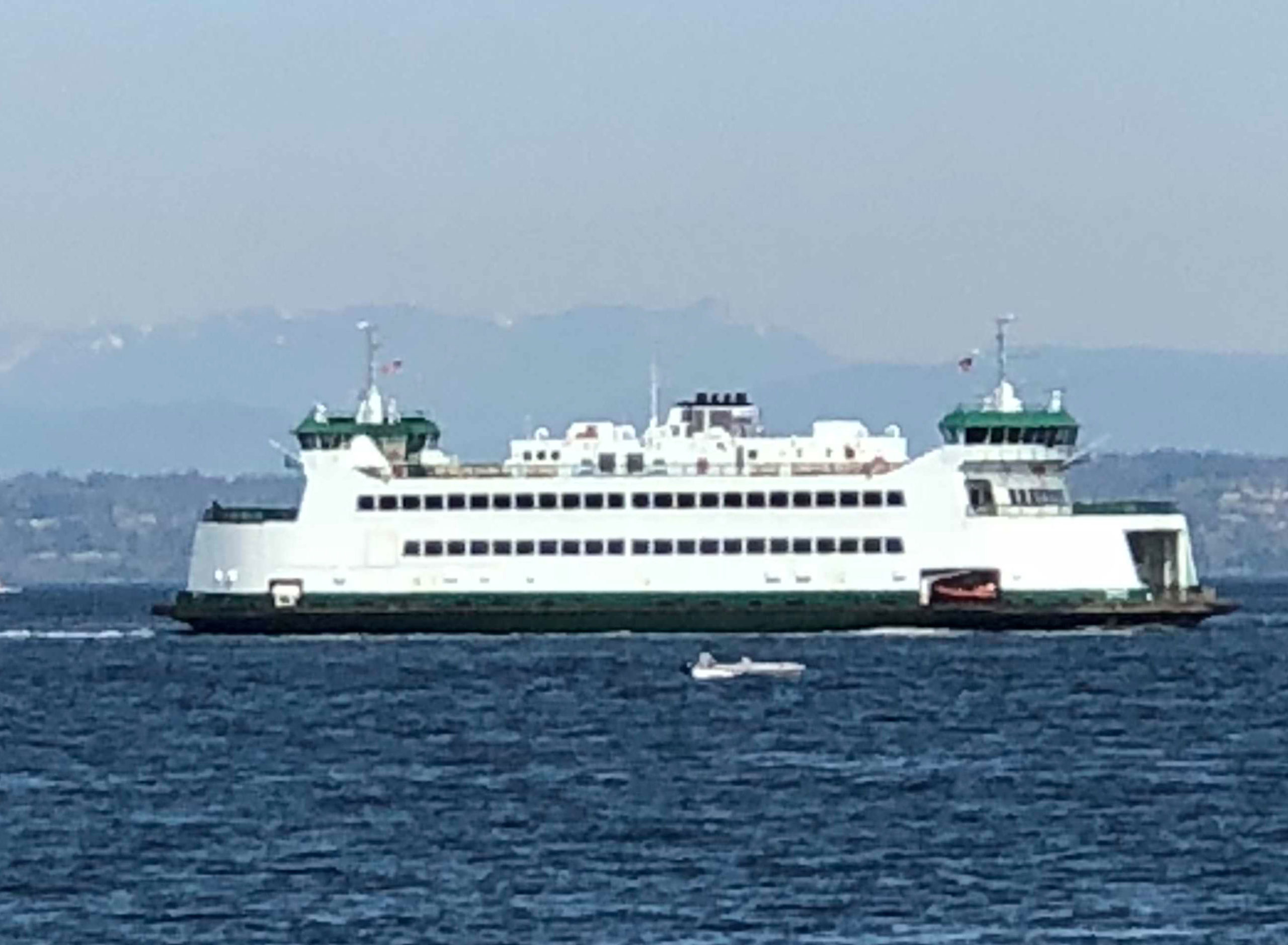Washington’s ferry system, largest in the nation, could get clean-energy upgrade
The rumble of the engine room is a familiar sound aboard a Washington state ferry, but that sound — and the carbon emissions that go with it — may soon become a thing of the past.
A member of the state’s Jumbo Mark II ferry fleet — the Tacoma, the Wenatchee or the Puyallup — will soon likely have two of its four diesel engines replaced with batteries. Once the conversion is complete, that hybrid-electric ferry would run on electric power most of the time, using the remaining diesel engines only in rare circumstances.
The money saved from converting that ferry to hybrid-electric power could cover conversion costs for the remaining two, Washington State Department of Transportation officials say.
The likelihood that the state will have at least one electrified ferry in the next several years is drawing international attention, in particular from Norway, which has one of the world’s first all-electric car ferries. State transportation leaders on Thursday took Kåre Aas, Norwegian ambassador to the United States, on a tour of the Tacoma’s engine room to talk more about the project — as well as how Norway and Washington might collaborate on electric ferry innovation.
As the ferry traveled to Bainbridge Island and back to the Colman Dock in Seattle, Washington Transportation Secretary Roger Millar and other transportation officials took Aas to the engine room to get an up-close look at the engines that would be replaced.
The massive engines rumbled as the ambassador and others on the tour walked between them, wearing protective earplugs. By comparison, batteries powering the electric motors will be nearly silent.
Washington’s Jumbo Mark IIs are some of the biggest polluters managed by WSDOT, Millar said. Combined, the three ferries burn more than a quarter of the diesel fuel used by the entire ferry fleet. The sound emitted by ferries and other vessels also makes it difficult for whales, including the endangered southern resident killer whales, to communicate.
“The people of Washington state are very concerned about climate change. They’re very concerned about greenhouse gas emissions,” Millar said. “We’re moving 25 million people a year on our system, and those three boats are our biggest polluters. They’re at the midpoint of their lives, and we are developing a plan to take them in as part of their regular overhaul and convert them to hybrid boats.”


Norway, meanwhile, is a leader in electric ferries. Its first all-electric car ferry has reportedly cut carbon emissions by 95 percent and operating costs by 80 percent. By 2030, the Nordic nation aims to have two-thirds of its ferries run on electricity.
During his tour, Aas remarked on the importance of balancing political action and the fight against climate change with practical invention — and that’s reflected in WSDOT’s ferry engine conversion. He also said that partnerships between Norway and Washington will be key as both governments find their way in this uncharted territory.
“The experience you’re getting, and the experience we’re getting, we can use those in our common endeavors,” Aas said. “There are good opportunities for Norwegian enterprises, but also American enterprises and enterprises in the state of Washington.”
Aas is also part of a Nordic delegation that traveled to Washington this week to discuss strategies for making the maritime industry more sustainable. That is also a major goal of the Washington Maritime Blue 2050 initiative launched by the state last year.
Up to $14 million in operating savings anticipated
Washington State Ferries, a division of WSDOT, is responsible for the ferry conversion. The conversion program will significantly cut diesel and carbon emissions, improve reliability, save money and virtually eliminate the engine noise that can disturb orcas and other whales.
Reducing noise pollution in our waterways is a significant piece of the executive order Gov. Jay Inslee signed earlier this year to protect the southern resident killer whales, which now number about 76 in the Puget Sound. Noisy vessel traffic from whale watchers, ferries, cargo ships and other boats interferes with the orcas’ ability to hunt and socialize. A recent study found southern resident orcas lose up to 97 percent of their ability to communicate with each other due to noise pollution.
Because the engine conversion is expected to take place during normal maintenance time, it will not disrupt passenger services, officials said. The project is also expected to save up to $14 million in ferry operating costs.
“We’re anticipating that that hybrid conversion is going to pay for itself in the fuel saved,” Millar said. “It’s going to reduce our greenhouse gas emissions by about a third, and it paves the way to converting the rest of our fleet to either a hybrid technology or an all-electric technology.”
– Washington State Governor’s Office








